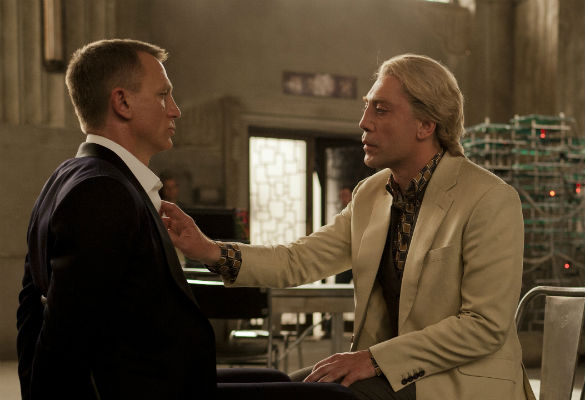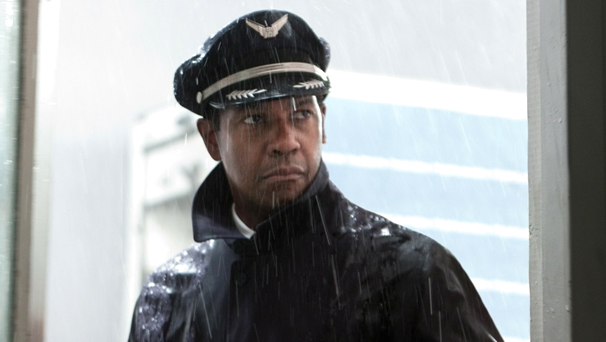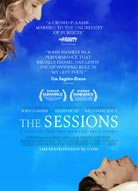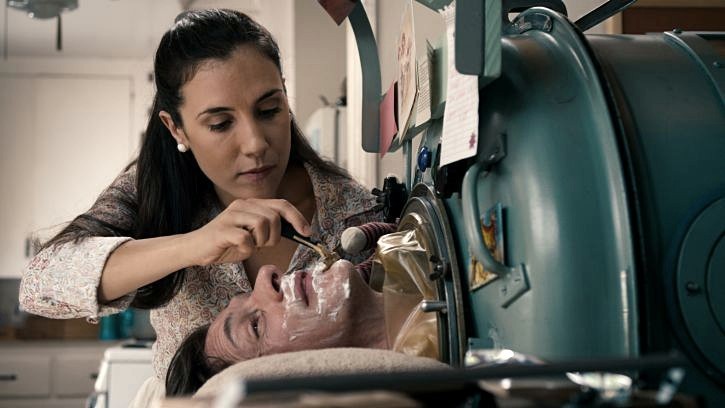Review: "Skyfall"
 Monday, November 12, 2012 at 8:18PM
Monday, November 12, 2012 at 8:18PM  This review was originally published in my column at Towleroad
This review was originally published in my column at Towleroad
Skyfall arrived on US screens Friday with such multiplex flattening hype that you'd be forgiven for thinking the title literal. The Cubby Broccoli estate, which controls the adventures of the super spy, was pulling no stops for the 50th anniversary installment of the granddaddy of film franchises. We've been inundated with Bond Mania for months now. So you'd think at this point that the actual film would be an afterthought. Not so.
The 23rd official Bond film delivers… and not just the five mandatory goodies no Bond film is complete without: Action (Particularly the Opening Setpiece), Theme Song, International Villain, 007 Himself and the Bond Girl. Unlike most modern franchises, the Bond series favors stand-alone storylines with only the five-pronged Bond template uniting them. Even Bond himself changes though Skyfall happily sticks with Daniel Craig's impossible zombie handsomeness and dangerously erotic icy blues.

Five mandatory goodies and Daniel Craig's sexual pull AFTER THE JUMP...








